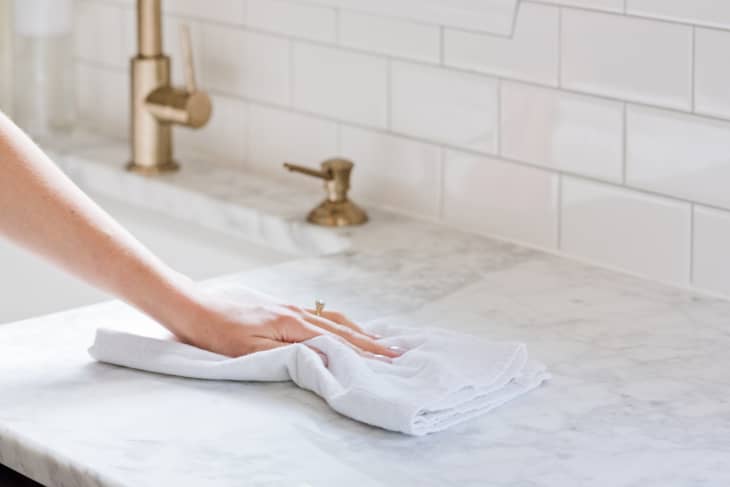One Thing You Should Never Do To Your $5K Marble Countertop
So you labored over whattype of countertopto get before finally settling on that gorgeous slab of marble? If you’re serious about keeping yourprecious countertopin pristine condition, there’s one very important thing you should never do: let lemon juice come into contact with it.
“Marble countertops are composed of calcium carbonate, which is known by its chemical makeup to react with acids,” says Leanne Stapf, chief operating officer atThe Cleaning Authority. And since lemons contain a high amount of citric acid, the fruit’s juice reacts with the calcium in marble countertops. This eats away at the surface, leaving behind dull spots called etching, says Robin Merwin, vice president of sales and marketing atDa Vinci Marble.
Vinegar, hot sauce, and other acid-containing foods and drinks, like tomato sauce, can also cause etching. And, unfortunately, though sealers help minimize staining, they don’t prevent etching, says Merwin.
Be mindful of the foods you are placing directly on the counter, says Stapf. And use cutting boards or place towels underneath items that are acidic to help prevent any lasting marks.
You should also avoid using household cleaners that contain lemon. Instead, fill a spray bottle with warm water and a tablespoon of gentle dish soap, says Stapf. Spray generously, wipe with a warm, damp cloth, then dry the surface with a microfiber towel.
But of course, accidents happen, and no matter how careful you are, you may wind up with etching on your marble countertops. These dull spots, which are typically more evident on darker marbles, are not considered stains—instead, etching is a permanent change to the surface of the stone, says Merwin.
If this natural patina bothers you, try a marble polishing powder likeMajestic Etch Remover. Just note this method takes sufficient elbow grease and only works on small etches. If your surface is in need of lots more TLC, there is a new and innovative topical treatment that is cured with ultraviolet light similar to what the dentist uses or a nail salon, says Merwin. It’s a rather pricey remedy—think upwards of $1000 for a typical kitchen—but one that lasts for 10 to 15 years, she says.
The cheapest option: a bit of caution, and plenty of preventative care.

